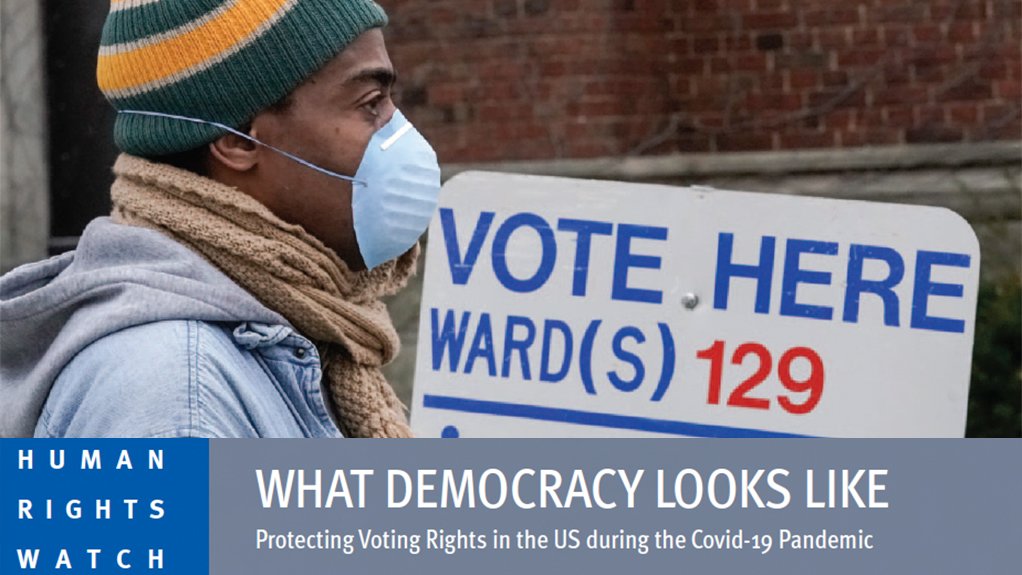- What Democracy Looks Like – Protecting Voting Rights in the US during the Covid-19 Pandemic2.07 MB
On the afternoon of March 20, 2020, James Nelson, a Black, 66-year-old longtime resident of Milwaukee, Wisconsin, went to the Midtown Center and voted early in person for the presidential primary that was taking place a couple of weeks later. “I always vote early but this year my decision was for health reasons,” Nelson said. He did not want to risk contracting Covid-19 at his polling place on election day.
His fears were well-founded. According to state data analyzed by the Associated Press, in March about half of Wisconsin’s confirmed cases of Covid-19—411 out of 842—were in Milwaukee. At the time, all eight people who had died of complications from the virus in Milwaukee County were Black.
On the state’s primary election day, April 7, Nelson, who has a long history of activism in his northside community, was curious about how it was going, so he took a long walk to the polling station to watch from afar. He told Human Rights Watch he was shocked by the long lines and the crowds. “There were old folks waiting. Some in walkers. People who looked like they were in their eighties, bent over and could barely walk,” he said. “We have to do better.”
It is not easy to hold an election during a global pandemic. However, election officials in Wisconsin made decisions that, even considering the difficult circumstances, violated citizens’ fundamental human right to vote. Milwaukee officials decided to reduce the standard 180 polling places—many of which were in small locations where social distancing would have been difficult—to five sites located in public high school gymnasiums. Reducing the number of polling places instead of increasing the number of sites is exactly the opposite of what should have happened, especially because historically disenfranchised racial minorities often feel most comfortable voting in person and reducing lines and crowds would have been advisable due to the Covid-19 pandemic. Other adjustments to secure poll workers, facilitate absentee voting, and to better support Wisconsin’s municipal clerks should also have been made. None of this would have been easy, but other US states, as well as other countries, such as South Korea, Indonesia, and North Macedonia, have shown that it can be done.
The United States will hold general elections in the midst of the pandemic on November 3, 2020. As Nelson said, the country has to do better. Doing better will be up to state and local officials working to administer the 10,000 different election jurisdictions that make up the decentralized system of elections in the United States.
Report by the Human Rights Watch
EMAIL THIS ARTICLE SAVE THIS ARTICLE ARTICLE ENQUIRY
To subscribe email subscriptions@creamermedia.co.za or click here
To advertise email advertising@creamermedia.co.za or click here











